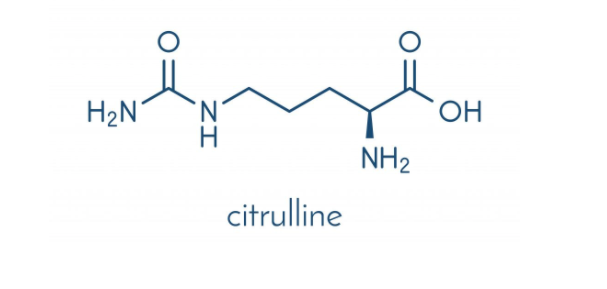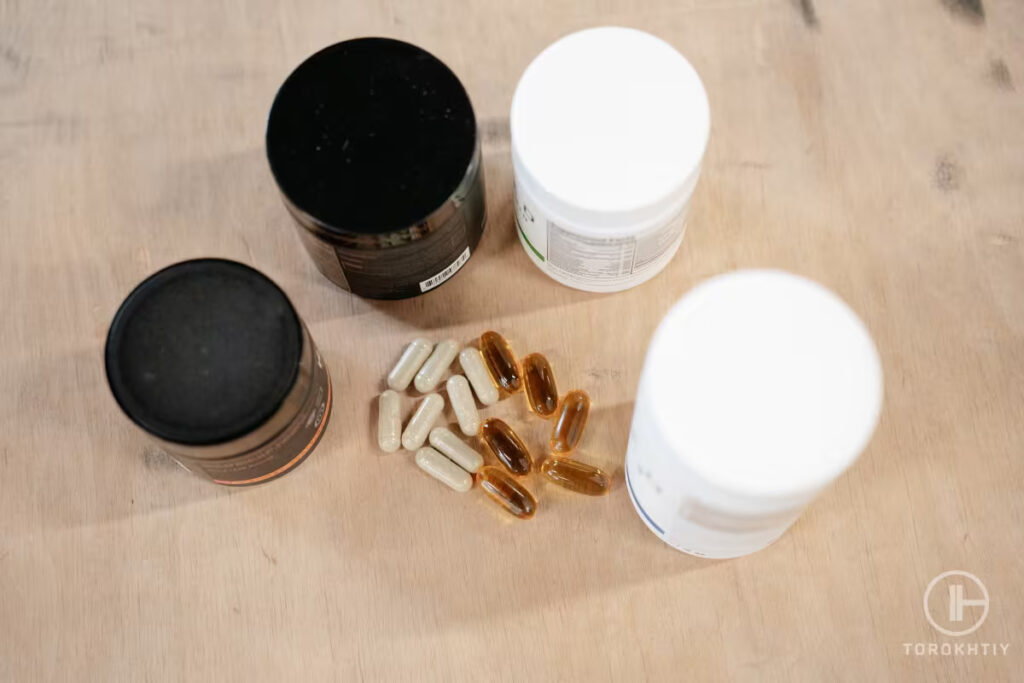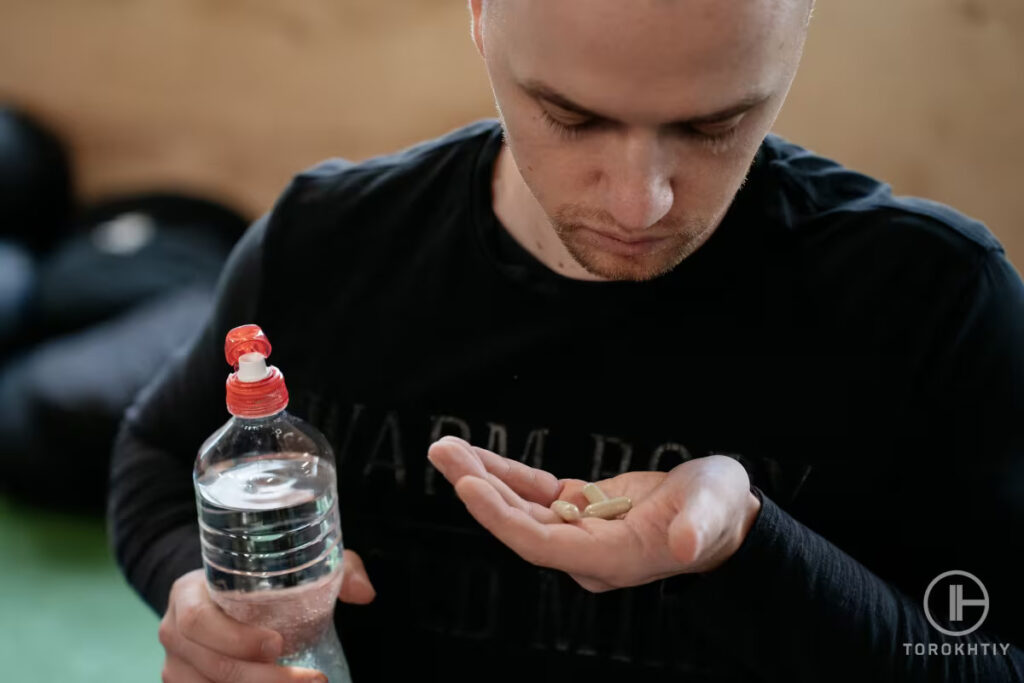Is Citrulline Malate worth buying?
Author:
Unlock your full potential by engaging with our experts and community! Have questions about your fitness journey or looking for expert advice on weightlifting techniques? Don’t hesitate — leave a comment below and Sergii Putsov will provide a personalized answer and insights to help you reach your goals.
Torokhtiy is reader-supported. Some links are affiliate links, and we may earn a commission at no extra cost to you. See our disclosure page for details.

Citrulline malate is an organic matter. In our body L-citrulline is produced from another amino acid – glutamine and comes from our nutrition. The best source of L-citrulline is watermelon, apples and grapes are rich in malic acid.
Our kidneys convert about 80% of citrulline to arginine. Subsequently, arginine converts to nitric oxide. Curiously, citrulline intake leads to higher arginine levels than the intake of arginine directly. Arginine itself is a strong vasodilator.
Citrulline malate potentially increases performance both in aerobic and anaerobic exercises through several different mechanisms: improvement of lactate metabolism, optimization of oxygen delivery by expanding the blood vessels, and rise of ATP. Citrulline is believed to be useful for weightlifters.
The majority of research is studying the combination of citrulline with malate. This is where the term citrulline malate originated from. Malate is thought to increment the energy production.
You may like it:

Until recently I pegged citrulline malate to be a supplement that is worth buying. But in the last few years, much research was undertaken that made me doubt the effectiveness of this supplement. I don’t want to overload you with scientific terms, so let’s just get familiar with the results of this new research.

Researches in support of citrulline malate
The Journal of Strength and Conditioning Research, 2015
Twelve experienced strength athletes were divided in two groups, with 8 g of citrulline for the first, and a placebo for the second. All athletes performed 3 leg exercises in 5 sets until they experienced failure. Those who were taking citrulline felt less fatigued and made more reps in all exercises, albeit scientists admitted that it is not enough to claim the effectiveness of citrulline.
Journal of Dietary Supplements, 2016
Fourteen strongmen were divided in two groups, with 8 g of citrulline for the first, and a placebo for the second. The first group showed 4 more reps in chin-ups, 6 more reps in reverse chin-ups and 8 more reps in push ups as a result.
European Journal of Nutrition, 2017
The goal of this research is to evaluate a short-term effect (1 hour before the workout) of citrulline on the workability of women that are practicing strength training. There were 15 participants. The first group took 8 g of citrulline, the second one took the placebo. Women that were taking citrulline made 1-2 reps more in upper body exercises. Meanwhile, the leg exercises showed a substantial difference – 11 reps in favor of citrulline.

Researches against citrulline malate
Nutrients, 2017
This research studied the impact of citrulline on the recovery of untrained young men after single heavy strength training. Nine subjects were taking 6 g of citrulline in one day and placebo in another. The results have shown that pre-workout citrulline intake had no positive effect on the recovery process.
The Journal of Strenght and Conditioning Research, 2018
This research investigated the impact of citrulline on the workability of trained men during the upper-body workout. Twelve subjects were taking placebo 40 min before the workout in one session, and 8 g of citrulline in another. The impact was evaluated by the indices in the bench press with 75% of 1RM in 5 sets and 15 reps. The exercise was made until 15 reps or until muscle failure. 8 g of citrulline 40 min before the workout showed no positive impact on workability, fatigue or pumping effect.
Journal of the International Society of Sports Nutrition, 2018
The goal of the research is to estimate the impact on anaerobic performance. Eighteen subjects were trained according to German Volume Training (GVT), making 10 reps in 10 sets. As a result, they made 90 reps in one training taking 8 g of citrulline 1 hour before the workout and 94 reps after the placebo. What is really strange is that Delayed onset muscle soreness (DOMS) syndrome was more significant exactly after citrulline malate intake. Scientists concluded that the pre-workout intake of citrulline has no impact on anaerobic workability indices.

The Journal of Strenght and Conditioning Research, 2019
The goal was to estimate the impact of citrulline on trained people’s muscle fatigue. Twelve subjects (6 men and 6 women) were taking 8 g of citrulline, placebo, or neither of them on different days. Citrulline malate turned out not to reduce fatigue after high-intensity training.
At last, The Journal of Strength and Conditioning Research published a full review in 2020. It studies the effect of citrulline intake on training workability. This supplement has proven to increase citrulline and arginine levels in the blood plasma. But despite the increase of blood circulation the evidence to support citrulline are insufficient or controversial.
This opinion is shared by experts from the National Institute of Health. According to them, the data collected to support citrulline is very controversial indeed, while some research has shown the positive effect others haven’t.
The total research base that is available to the present day can’t give us a convincing answer. That’s why the question about citrulline malate effectiveness remains a subject to discuss.
I want to add an important notice from myself. The fact that some supplement affects the levels of some substances in the blood doesn’t guarantee the increase of your training workability. From a practical standpoint it doesn’t matter what’s happening in our blood, what matters is how it affects workability and recovery processes. If we can’t add extra reps or lift heavier weights why should we even bother about what’s going on in our blood?
It’s up to you to decide whether citrulline malate is worth it or not. But I would save my money for more studied supplements with proven effects like creatine and caffeine.
You might be interested in:
Why Trust Us?
With over 20 years in Olympic weightlifting, strength training, nutrition coaching, and general fitness our team does its best to provide the audience with ultimate support and meet the needs and requirements of advanced athletes and professional lifters, as well as people who strive to open new opportunities and develop their physical capabilities with us.
By trusting the recommendations of our certified experts in coaching, nutrition, and sports training programming, as well as scientific consultants, and physiotherapists, we provide you with thorough, well-considered, and scientifically proven content. All the information given in the articles concerning workout programming, separate exercises, and athletic performance, in general, is based on verified data.
The product testing process is described in more detail here.
Author: Sergii Putsov
Head of Sport Science, PhD
Best Results: Snatch – 165 kg,
C&J – 200 kg
Sergii Putsov, Ph.D., is a former professional weightlifter and National team member, achieving multiple medals in the 94 kg weight category at national competitions. With a Master’s degree in “Olympic & Professional Sport Training” and a Sport Science Ph.D. from the International Olympic Academy, Greece, Sergii now leads as the Head of Sport Science. He specializes in designing training programs, writing insightful blog articles, providing live commentary at international weightlifting events, and conducting educational seminars worldwide alongside Olympic weightlifting expert Oleksiy Torokhtiy.




Still have questions after reading our article? Unlock your full potential by engaging with our experts and community! Don’t hesitate — leave a comment below and Sergii Putsov will provide a personalized answer and insights to help you reach your goals.